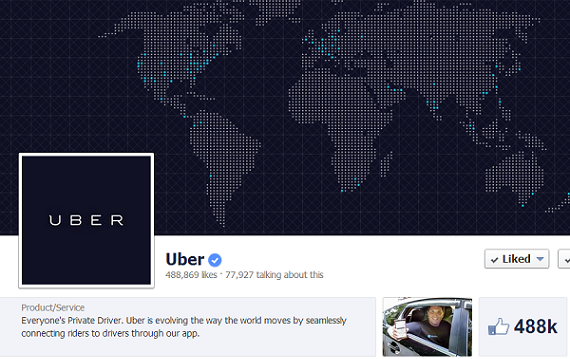
There’ are a lot of potentially interesting partnerships out there in the tech world, and ways that two companies can come together to enhance each other’s product.
For example a company like Lyft can partner with AnyPerk to help the company retain drivers. Or younity can team up with GoPro to allow users to instantly stream their videos. These partnerships make sense because one company is giving the other something it cannot do itself.
There is one combination that, I have to admit, I never even thought of: Facebook and Uber. The two companies are currently in talks to integrate the e-hailing service into Facebook Messenger, according to a report from ReCode on Thursday.
So how exactly this would even work? Details on what exactly such an integration would look like are obviously scarce right now, but, as ReCode pointed out, there is some precidence for such a move: users of Chinese messaging service WeChat are able to use a taxi-ordering service called Didi Dache without having to leave the app.
The thinking is that the mashup of Facebook Messenger and Uber would work in a similar way, allowing users to not have to switch apps when they want to contact an Uber driver.
It’s easy to see the benefits for both sides.
On a conference call following the release of its second quarter earnings on Wednesday, Mark Zuckerberg talked about Facebook’s future in payments, and how they would be integrated onto its other, stand alone apps, including Messenger.
What he said was that these apps were in the early stages of building up the ecosystem where they would potentially be money makers.
“We’ve said in a number of comments that we think some of these newer initatives are going to ramp over time. We really do mean that, and we’re serious about doing this the right way and building up these ecosystems,” he said. “And I think for some of these other apps, we’re just going to build all the infrasturure that we need to make it something thats scalable over time, rather than trying to have this be an impact you’ll notice over the next short term period of time.”
Adding in Uber would certainly be a good first step toward adding in that infrastructure for other future integrations, and it might also be Messenger’s first chance to prove its monetary value.
As for Uber, there are a boatload of potential new clients. On the call, Zuckerberg revealed that, as of April, the company had reached 200 million monthly actives on Messenger.
While Uber does not reveal its user numbers, a document that was leaked last year showed that the app had roughly 2 million monthly users as of November of last year. Surely those numbers have gone up, but there’s no way its anywhere near 200 million.
Uber just raised $1.4 billion at a $17 billion valuation. Those are some high numbers to justify to investors. Obviously there’s going to be some overlap with the Messenger audience, but imagine if Uber can add half of those users, or even a quarter, of those users.
Uber declined to comment on this story. Facebook could not be reached for comment at this time.
(Image source: facebook.com/uber)


















